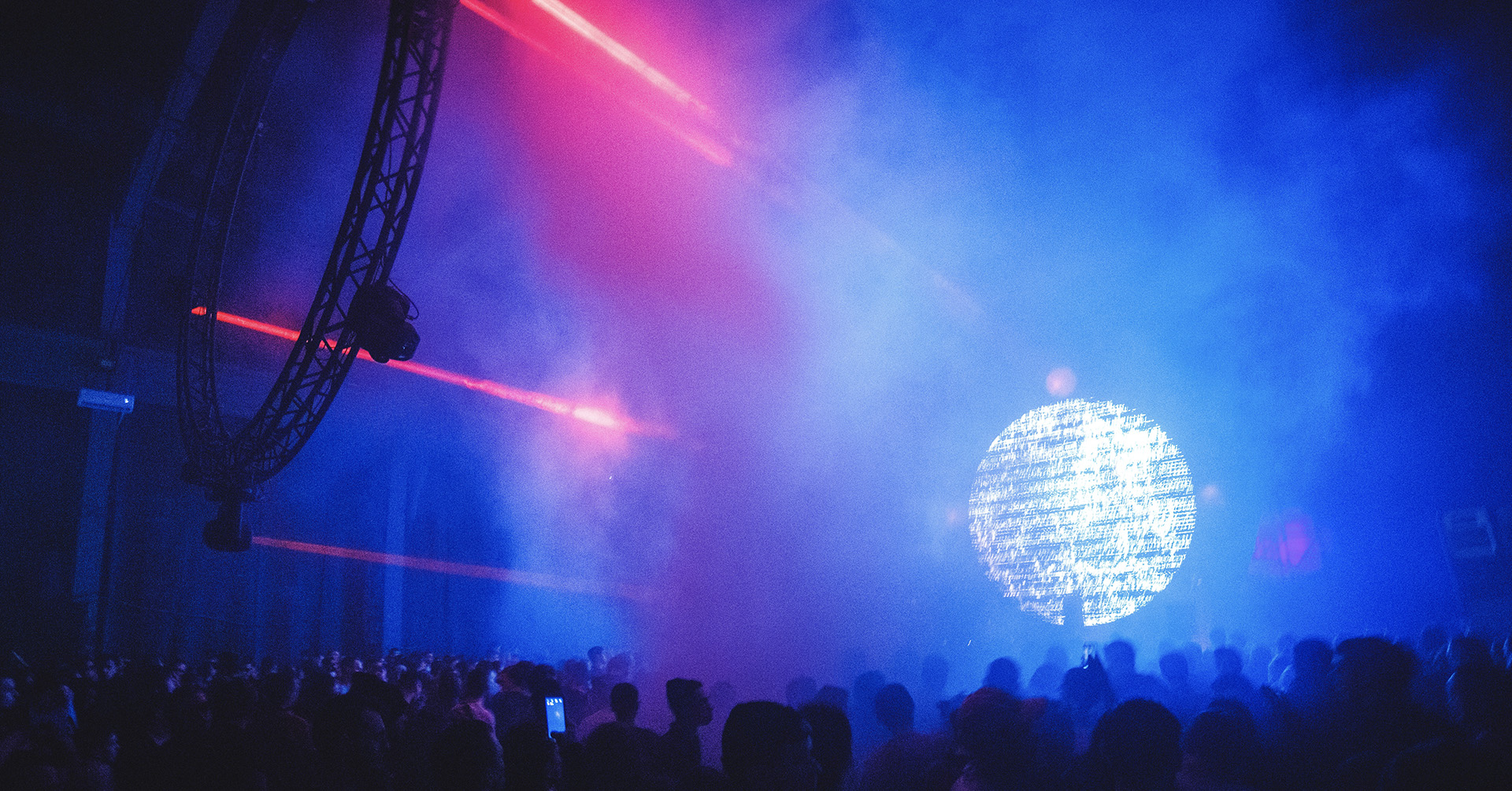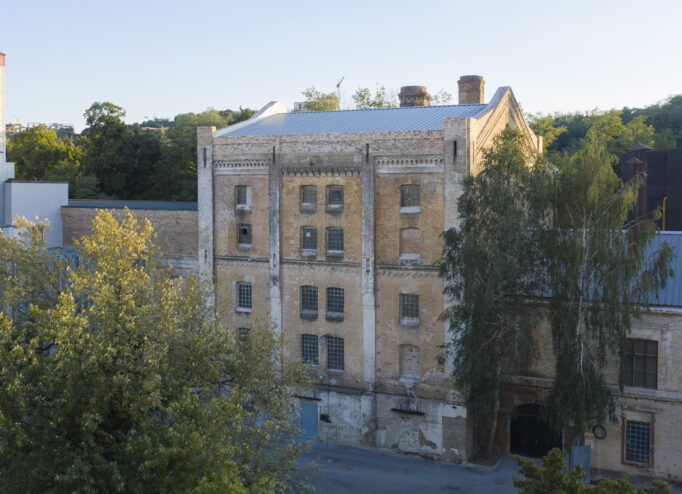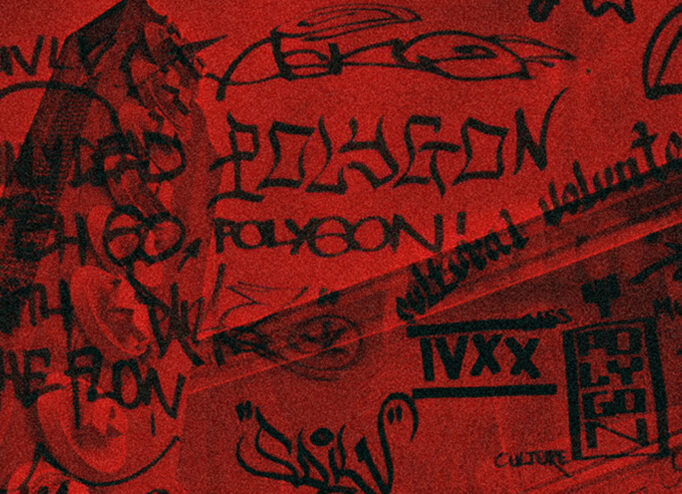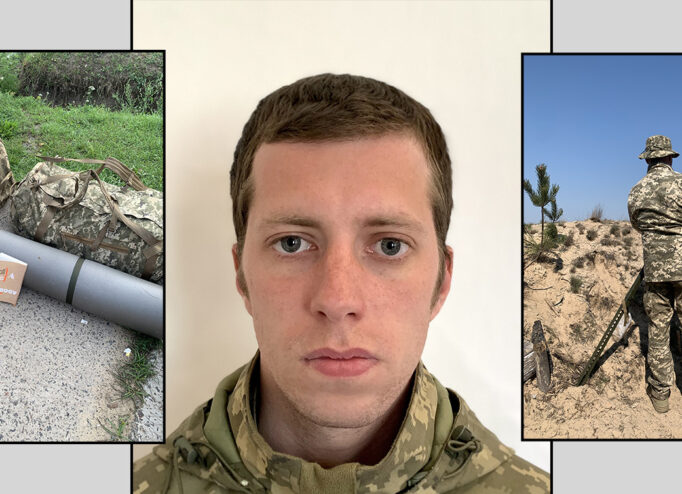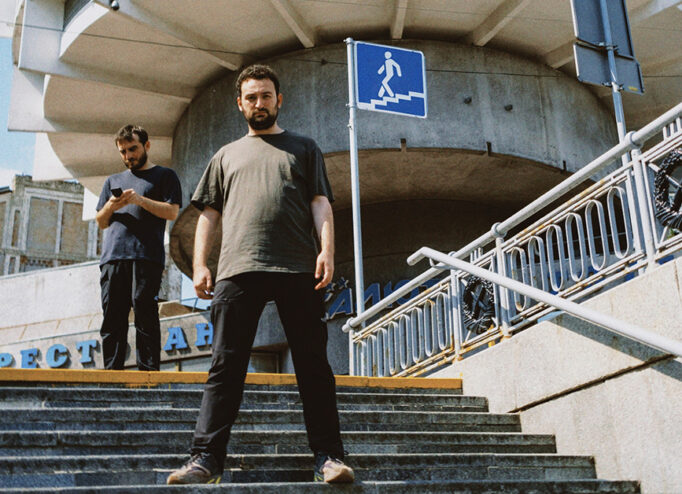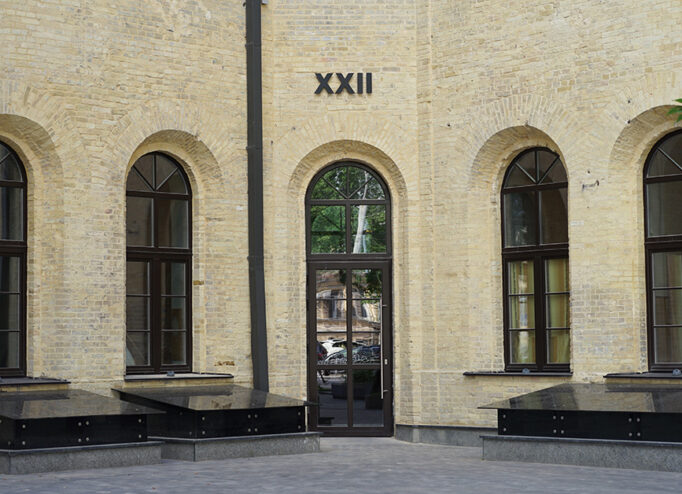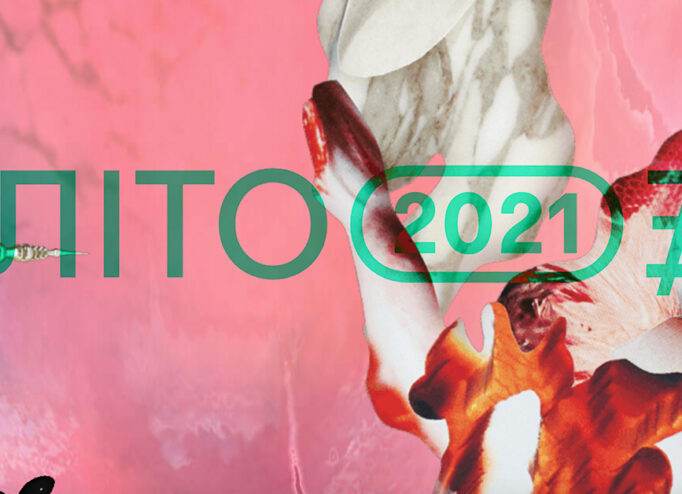The Kyiv formation Rhythm Büro will hold their first big indoor party after two years of forced hiatus on 5 February. The team had to cancel all their planned events because of the coronavirus pandemic and they only left the annual Natura festival, which takes place annually in the forest near Kyiv. But the format of big parties in industrial venues is returning only now.
Rhythm Büro returns with two big names in the line-up this year, namely Rrose and Anthony Rother. They will be joined by artists such as Blind Observatory, Hydrangea and Rhythm Büro co-founder Vera Logdanidi, who will open the party.
Anya Bilous spoke with the founders of the formation at the request of DTF Magazine, namely Igor Glushko, Vera Logdanidi and Olexander Pavlenko, about why they are returning to the scene now, whether the format and musical vector of the parties will change, about competition in Kyiv, as well as about the desire to make Natura an eco-oriented festival
«Projects have become more complex and more expensive»
— For two years now, you, like many others, have been living in an environment where you have to balance limitations with common sense. Previously you reduced events only to Natura. But now Rhythm Büro is back with indoor parties. Why now?
— The answer is simple — we do quite large events, we have to weigh all the factors very carefully. We’ve been waiting for a long time to finally have some sort of clear and stable approach to events during a pandemic. Just recently, the rules changed once a week. Accordingly, the organization of an event with a large budget in the room was associated with very high risks. And the cancellation for us is another loss, we lived through it once and do not want to repeat it. Now the working conditions have become more predictable and feasible — restrictions on events do not apply if all visitors and all organizers are vaccinated. We can provide a screening system for everyone.
— Have your approaches to organizing big events changed over this time?
— In fact, we’ve only done two open air festivals in two years. We went back to organizing events in Kyiv and we can say that the projects have become more complex and more expensive.
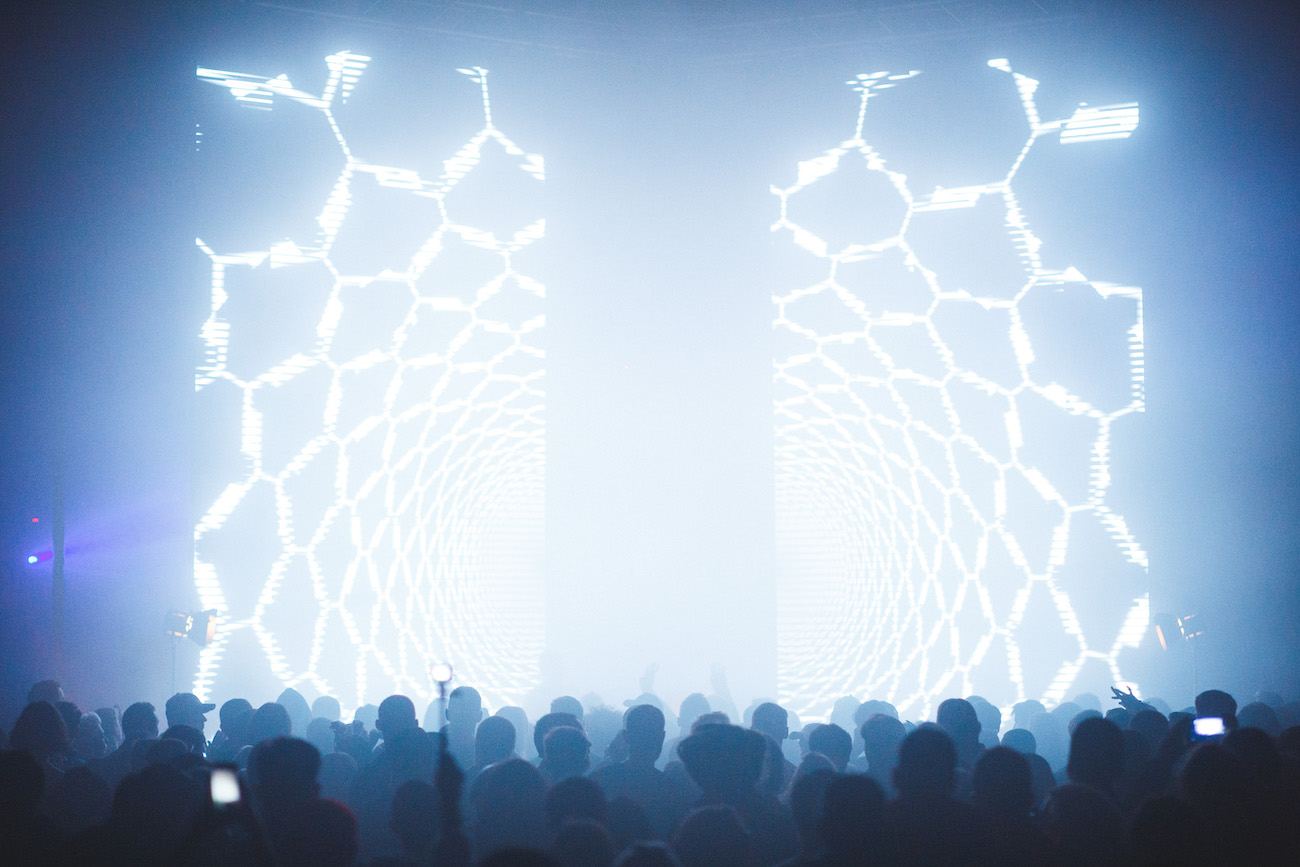
«We’re putting musical diversity and sustainability of events on the agenda»
— A few years ago you told DTF Magazine that Global Communication’s performance at Rhythm Büro was part of a new vector in your music policy. What is this vector now?
— We continue to show different kinds of music. For example, alternative directions are developing at our two festivals that we were lucky enough to organize.
We would describe the opening Natura stage as the Selectors Stage. It’s no longer strange to hear downtempo at the festival, there is a separate stage for ambient and cross-genre electronics, there is a strong stage for house music, which competes for supremacy with the techno dance floor. We can remember Bryozone & Mlin Patz (b2b + live sets), a terrific live set by Grand River, a special downtempo set by Roza Terenzi and a special set by Pole Dtekk, very strong live sets by Saphileaum, Heinali, Vadim Griboedov, Vladimir Gatepko, Zavoloka, Monoconda, Voin Oruwu.And we can also remember the selector set by Marco Shuttle, which is hard to put into any genre at all.
Most of the artists prepared a unique program for us. It’s a great honor for the event, especially when it comes to the live shows. That says a lot in terms of the results of our vector. We strive to make sure that the recordings from our events have a high value, that people look for them and the tracks that were played.
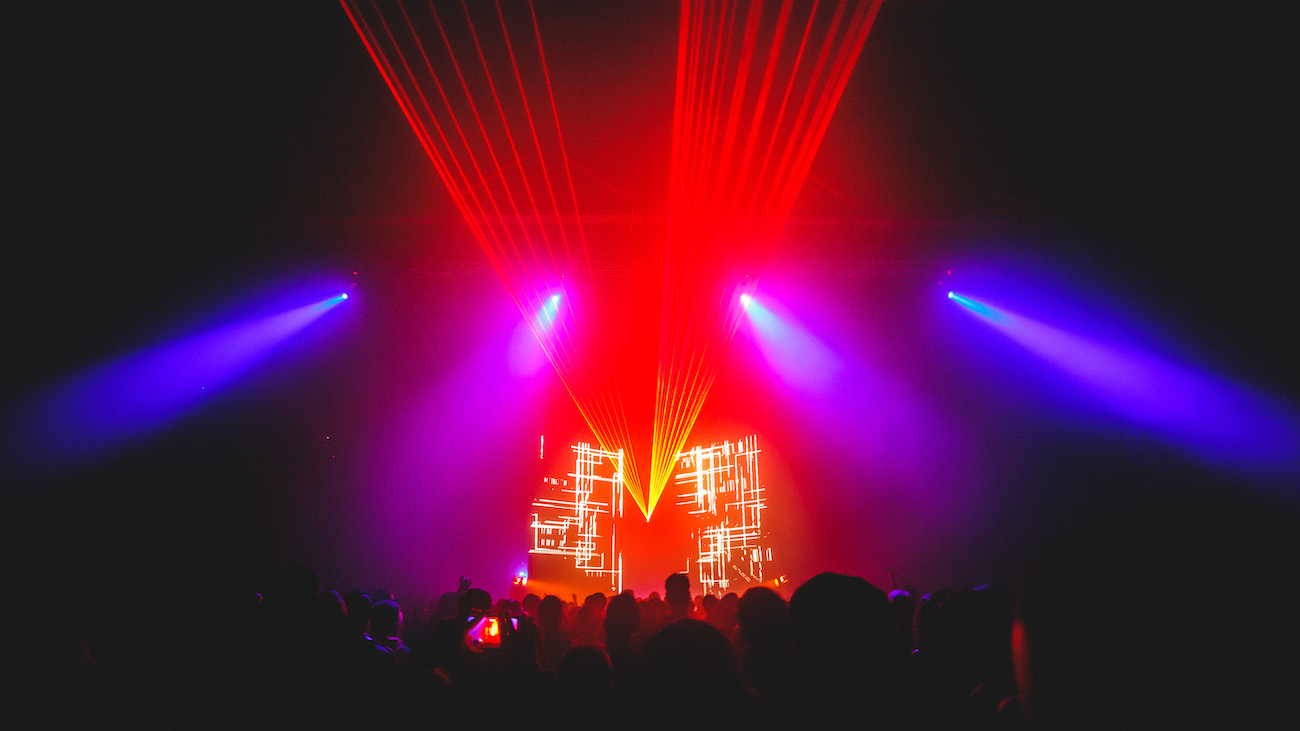
— Do I understand correctly that you’ve decided to give up the techno that’s being played everywhere now?
— We can’t give up techno, because it’s our main profile. But techno can be different. We have experience in this direction and good taste, we are interested in developing a deeper side of this genre.
Unfortunately, deep music is rarely played in Kyiv, especially techno.
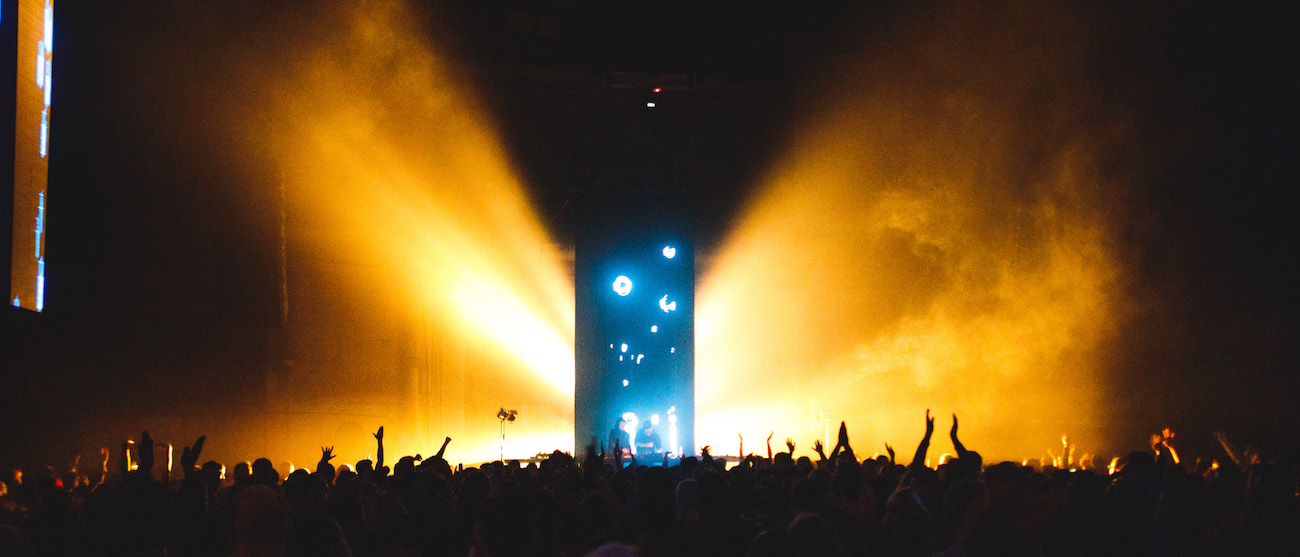
— When did you realize you needed to “change the format”?
— We’re constantly bringing in new things, it’s an ongoing process. Some things take root, sometimes you have to move on. Moreover, format is a very strong word. The phrase “change the format” sounds like something drastic. Although any of our steps forward are natural, it’s a process of development. And this can include both musical and completely different things. For example, at first we had a reputation of being pioneers of big parties with good artists in secret locations. We also showed a completely new approach to working with light. A little later we collaborated with cool designers and did crazy things, like those giant posters with jugoceania. We explored non-club locations and the industrial part of Kyiv, where a whole club district has already formed now.
There was a stage when we tried to change people’s attitude to the party: we showed that it was enough for the organizer to say the date of the party, we showed an example of trust. Then we changed people’s attitude to the first opening slot, we invited star artists to play special sets. Now the opening is a very important slot, people come to listen from the very beginning, whether it’s Global Communication or someone local.
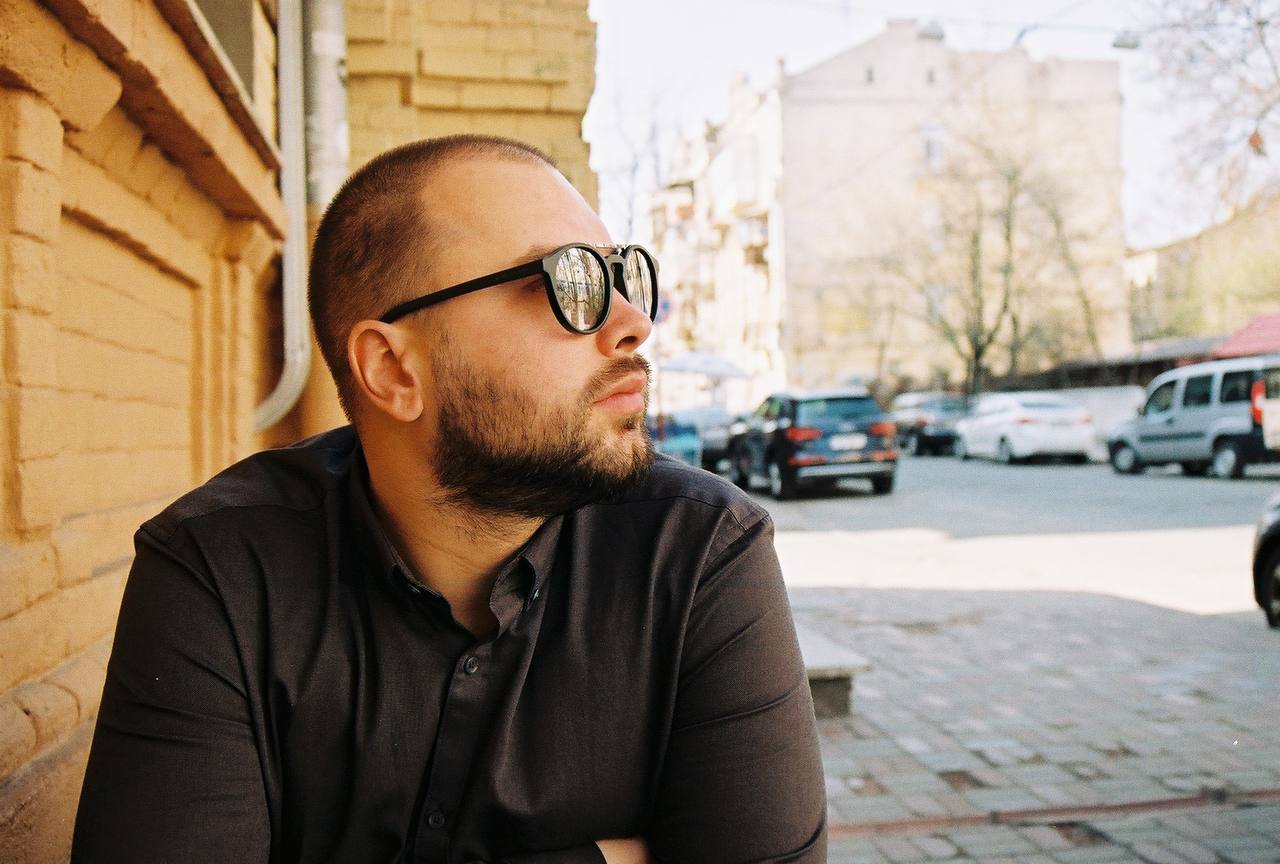
We tried an evening format, we brought Actress with a live show. We put the concept of showcase on the agenda, told the audience how a label can move the sound. Now even local labels are doing their own showcases, which is great to see. We’ve launched a label where the music is changing as well. We were the first ones to start taping cameras, for which we took the first wave of misunderstanding. We still do that sometimes now, so that people blend in with the music on the dance floor, not the reactions on social media.
We also dared to do a techno festival in the woods. We were one of the first to openly collaborate with a drugstore, we explained what it was for and why. There are some things that we use as a given now, but that wasn’t always the case. This is the result of working with the “format”.
We’re putting music diversity and sustainability of events on the agenda, as far as current challenges are concerned.
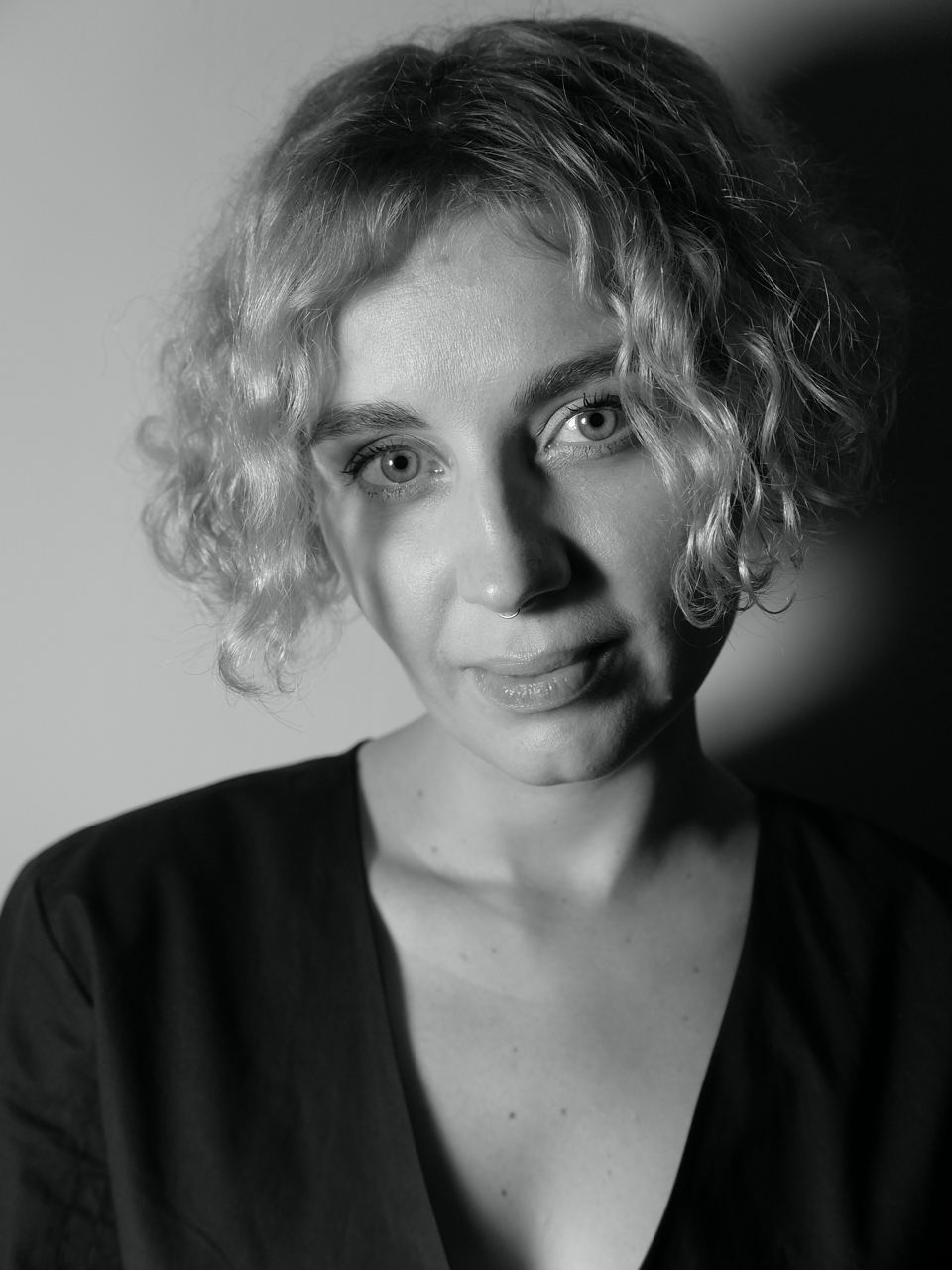
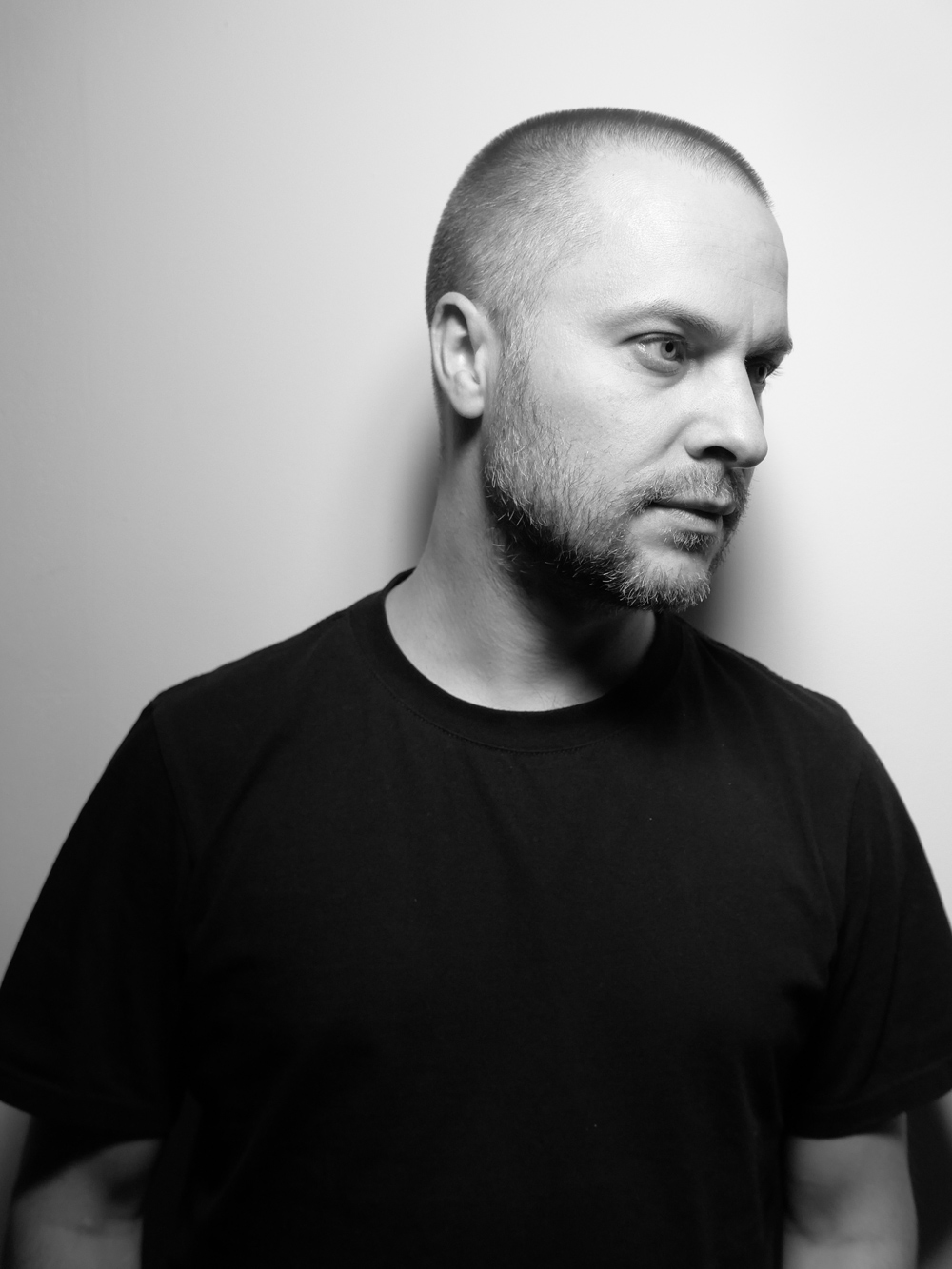
«We put together our wish list and invited most of the artists from it to Natura 2022»
— How difficult is it to bring big names to a big event, given the current situation in the country?
— Now it is quite difficult, given the actions of our neighbor to the north. But there were no such problems a couple of months ago. It’s worth understanding that due to covid restrictions in the world many artists have seriously reduced their touring schedules, so in principle coming to Ukraine is quite an interesting experience for them.
— Which of the heroes of the upcoming event was the most difficult to agree with?
— We must be lucky with the artists and their decisions. They are ready to come to Kyiv. Though there were some doubts and we discussed the current situation many times. The booking went quite smoothly because we have been working with the artists for many years.
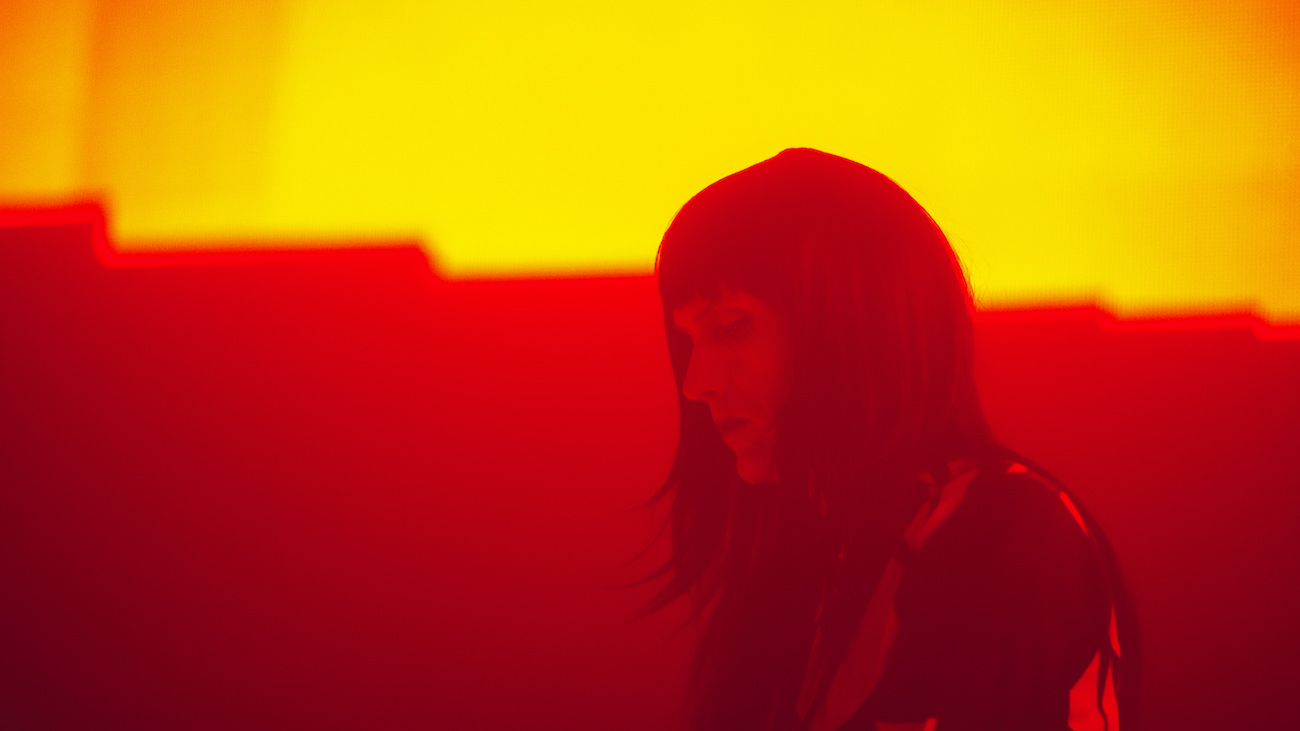
— Who else would you like to bring to Ukraine who hasn’t been here?
— We gathered our wish list and invited most of the artists from it to Natura 2022. We’ll spend two days listening to our favorite musicians and running from dance floor to dance floor, if everything goes well in our country and our plan happens.
«The scene would be incomplete and poor without colleagues»
— A lot of new players have appeared in the market during your “absence” (I’m not talking about the festival). What do you think about the competition in Kyiv nightlife in general?
— I guess the competition is felt by the clubs now. They need to do events every weekend. Discussions about dates between the major players are practiced in the case of big events and festivals. This allows you to keep a little distance and coexist peacefully, although there have been exceptions.
We don’t look at projects as competitors at all, everyone on the stage is useful and, in our opinion, there is enough room for everyone, too. We all develop music and we are all in the same boat..
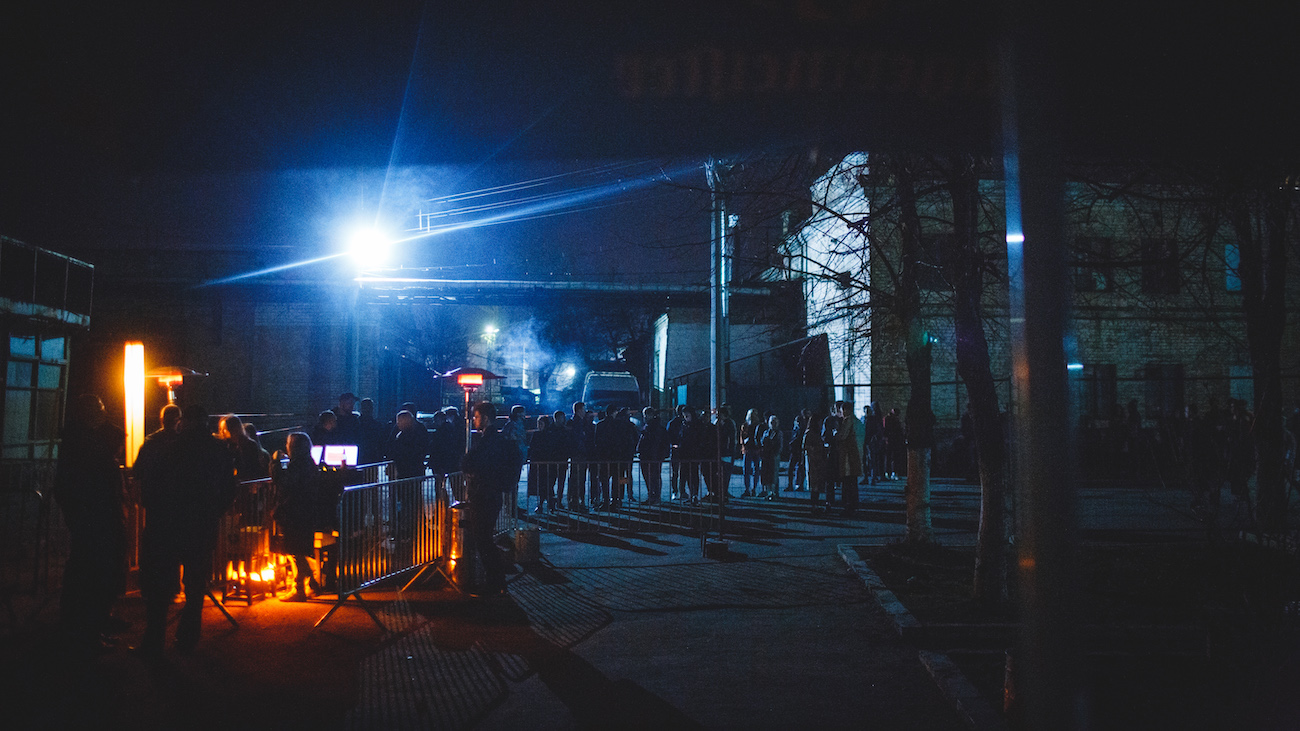
— By the way, who would you say are the key players right now?
— The point is that our scene is a single ecosystem. It would be foolish to single out the most prominent and big ones, thereby devaluing the importance of more niche projects. Absolutely all artists are important. They contribute to the formation of the new, strong Ukrainian electronic scene and industry. And this list is not only from clubs and festivals, but also from schools, studios, radio stations, stores, booking agencies and media. The whole system would be ruined if some non-key layer were removed. So respect to all.
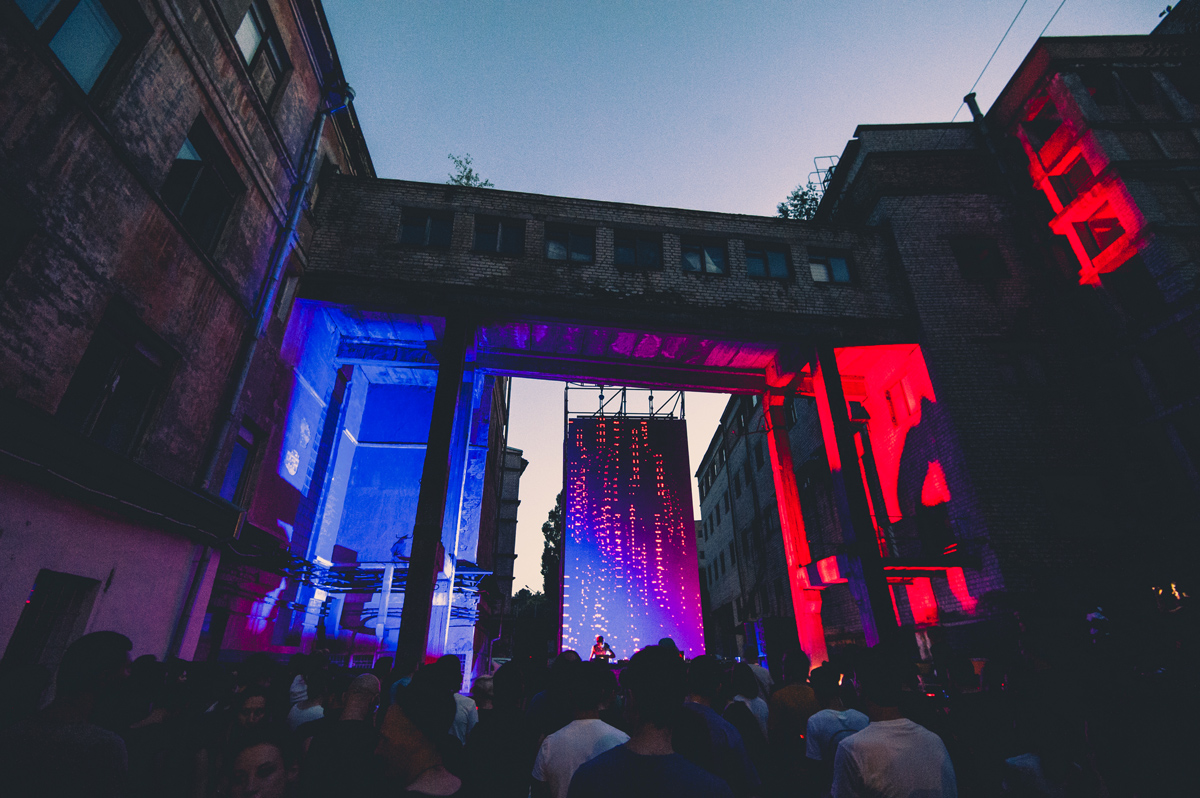
«We have no goal to find and designate our niche, let people characterize it themselves»
— You have already collaborated with Bassiani and their festival «ISKRA». Should we wait for new collaborations from Rhythm Büro? Maybe it will be a showcase at «Kyrylivska 41» (∄)?
— We invited Bassiani to Ukraine several times, we are friends and we respect their project. Regarding «ISKRA» and Kyrylivska — we played only festival and club, we didn’t go further than that and we never discussed it. Probably it will be strange to do the Rhythm Büro showcase in Kyiv, taking into account the fact that we are very well presented in our territory. But we are always ready to discuss ideas if there are requests.
— The way I see it: everyone has to find their own niche. Have you found yours yet? How would you describe it? What is Rhythm Büro?
— The party as we understand it is an art and ritual act, a territory of important human experiences. We explore music for this context and open this channel to others. We have no goal to find and designate our own niche, let people characterize it themselves.
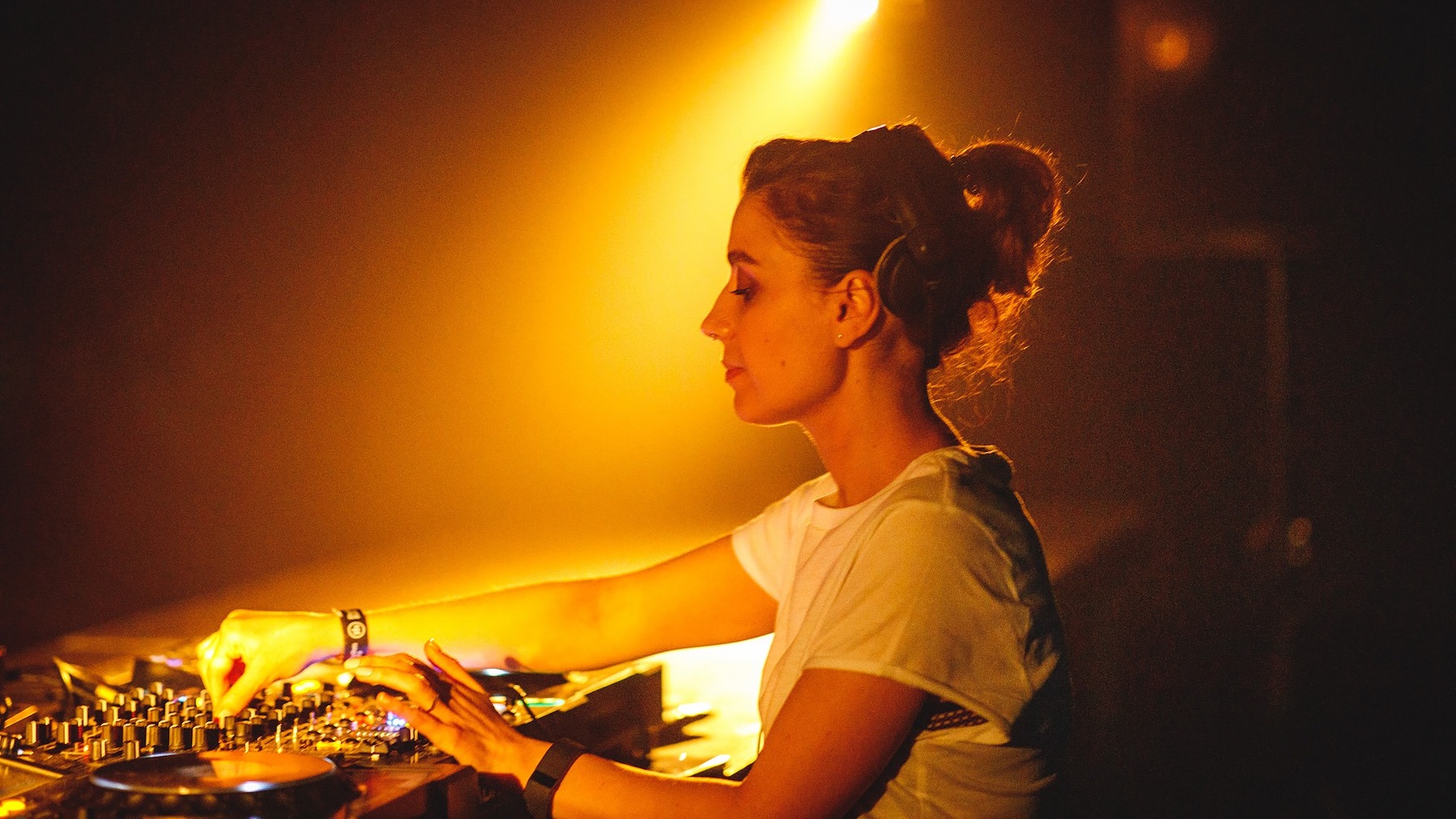
— How have your musical tastes changed over the life of the project?
— Rather, we began to pay more attention to other music, if we compare it to what we had in the beginning. It can be different both in the dance context and in the listening context. For example, at the first events there was practically no house, and experiments with ambient and more abstract forms were out of the question. The main thing is that the music should be appropriate to the atmosphere of a particular place at a particular time. This is where we see our expertise as promoters: we know how to combine a space and its “soundtrack”.
— What do you think the local scene is missing?
— The local scene lacks non-trance formats, listening bars, selector line-up, and unbiased and specializing in electronic music media. It would also be great to see the development of radio projects.
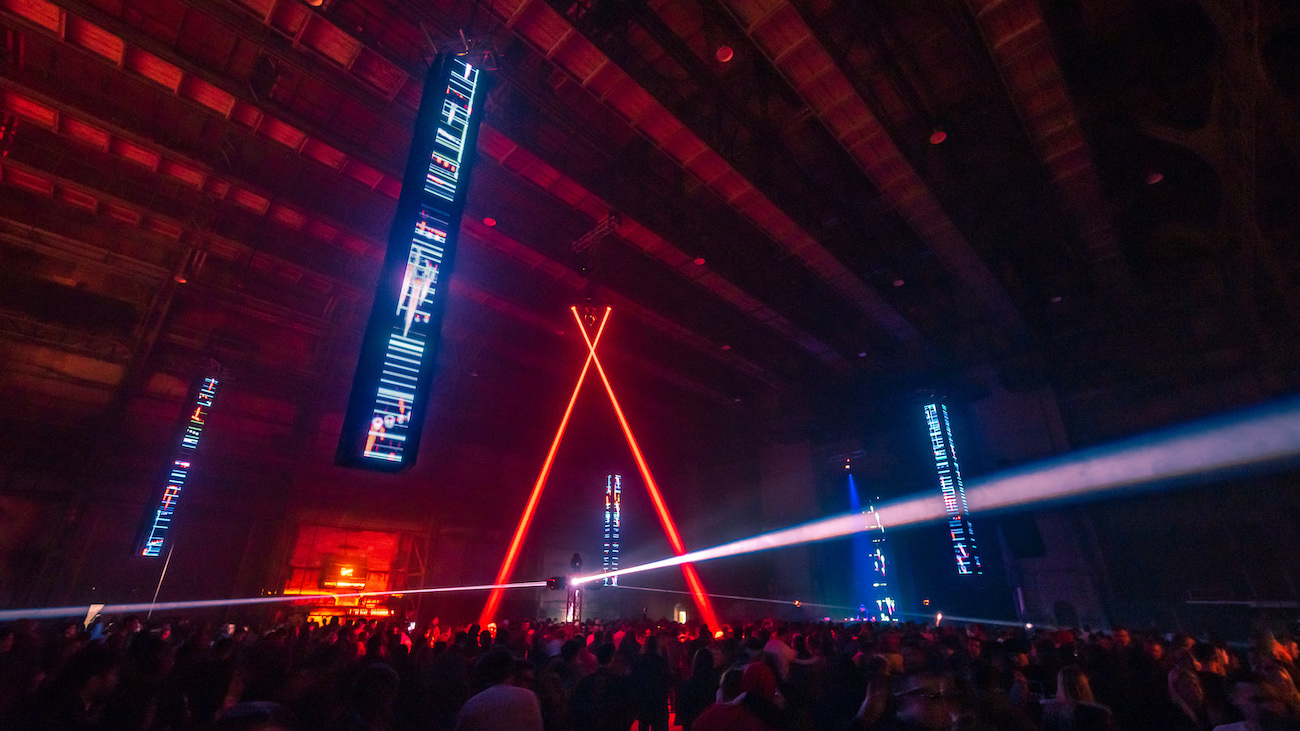
«We have a goal to make all events environmentally friendly»
— Natura is becoming a pioneer in the ecological approach to festivals. How did you come to this?
— It’s a matter of common sense – we just see how much trash is left after events, and we know what happens to it next. Unfortunately, it just lies in the landfill for dozens or even hundreds of years. All those cups, bottles, bracelets, and so on just lie there. It’s very sad to realize this. Few people have noticed, but our first attempts at sorting took place in 2019 thanks to The Ecoverts Project. What we’re doing now is a whole other level. Plus, we’re excited to see active participation from our audience. We have a goal to make all events eco-friendly, not just the festival.
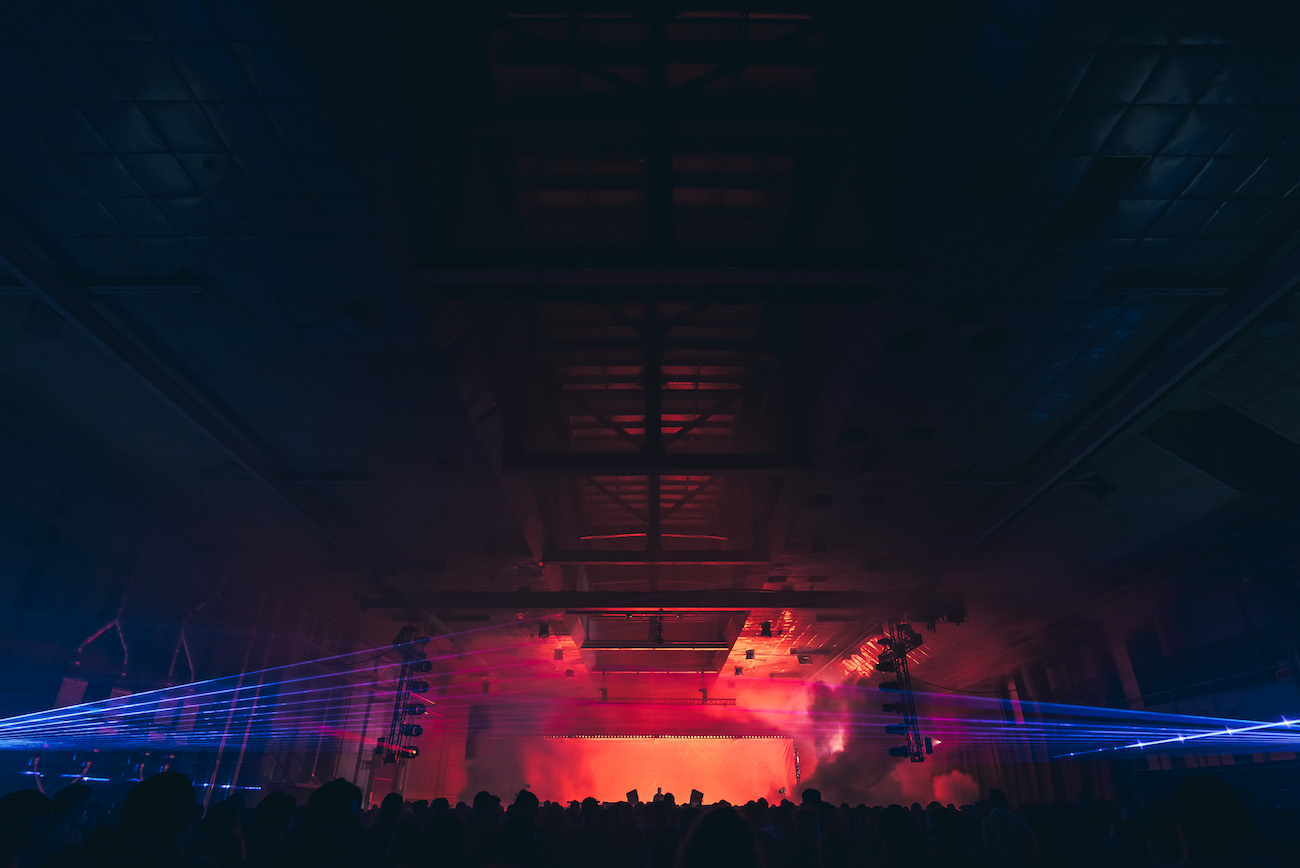
— Is it hard to make such a big event with an eco tag?
— It’s worth starting with finances: we’re talking about a huge additional budget, which is incomparable to regular garbage collection. We are fortunate that our visitors are modern, conscious people, so they participate in co-financing the project. This is incredibly cool, because we raised most of it from the sale of an optional eco-ticket.
As for the practical part – we could not do it alone, too, because the collection and sorting of waste is only a part, you need to know what to do with it next, what contractors to trust, what control systems and pitfalls can be. That is why we invited the Ecohelper project to work with us. Consultants worked day and night near the sorting stations thanks to their team, we also had a garbage truck with GPS-tracking. You could monitor suspicious stops of the car. The driver also makes a video report of the whole process of transferring the garbage further. We could not pay attention to such things ourselves, and it is very important and gives confidence that the garbage will not end up on some lawn. And this is a common practice, unfortunately.
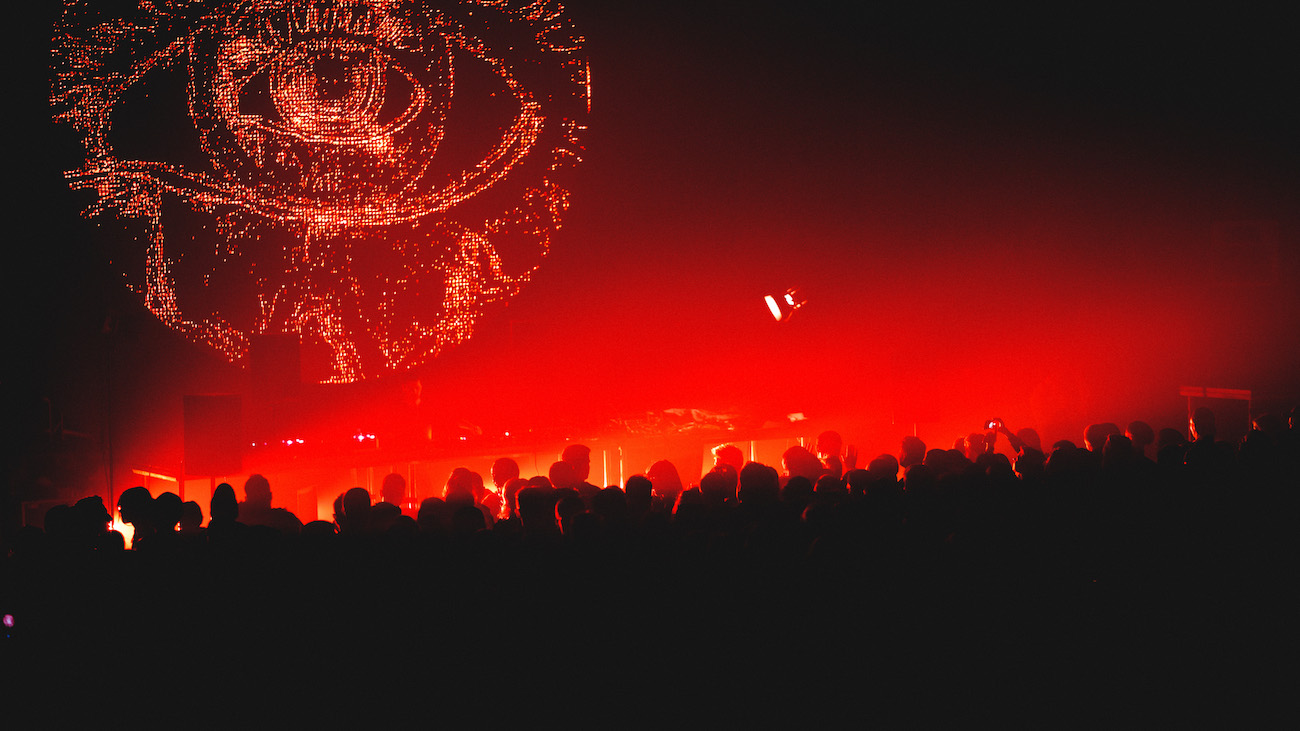
«We’ve been working on our reputation for almost 7 years now»
— How does the Rhythm Büro brand work? You haven’t done much promotion until recently. Usually, you just announce ticket sales, and people immediately buy them. Where does that credibility come from?
— This is all the same result of working with the format we talked about earlier. People can’t just buy tickets without a line-up and a location. Behind all this is a formed reputation, the confidence of the audience that we will not let them down and word of mouth.
We’ve been working on our reputation for almost 7 years now, not counting another dozen years in music before Rhythm Büro.
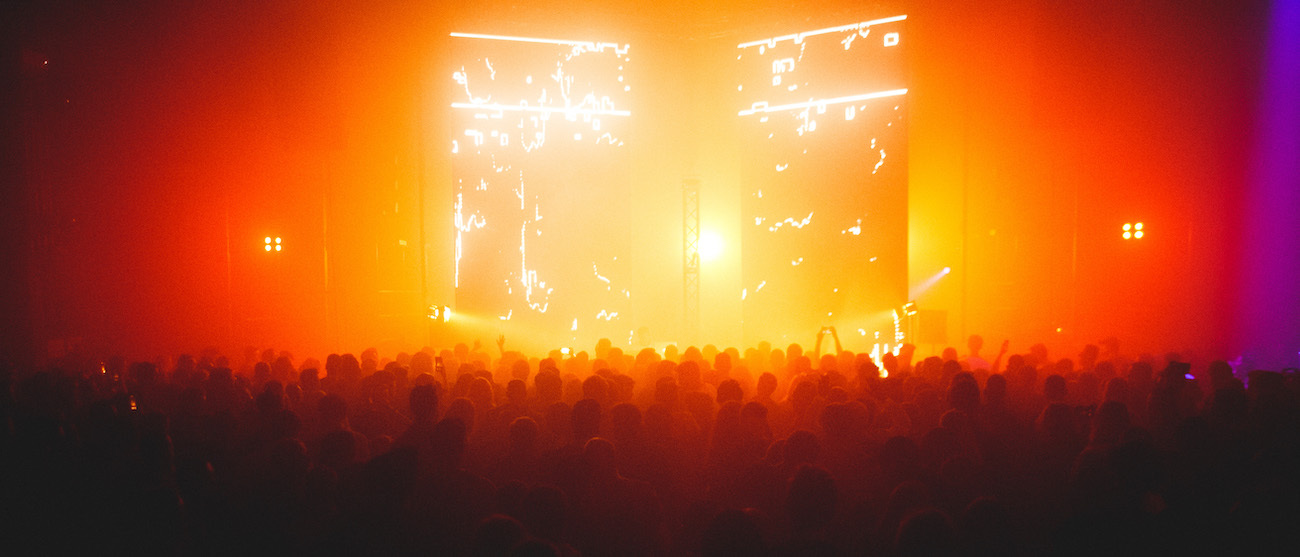
— What is the fundamental difference between the Rhythm Büro and everything else on the market?
— Our project is a cultural phenomenon, we are part of the global scene. We do our job with love for music, and we are happy that the guests of our events are our friends and colleagues. We would like these characteristics to be a common feature with other projects in the scene, rather than a distinctive one.
— Do you plan to open a club sooner or later?
— Club? Absolutely not! We made this decision long ago and very consciously.
